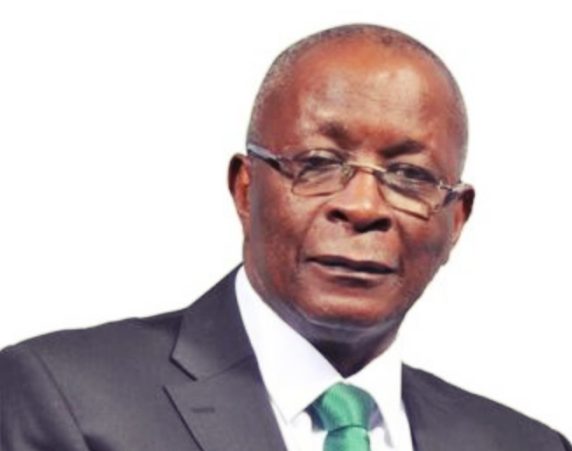By Andrew Keili
I was recently priviledged to chair the launching of the newly formed Institute of Directors (Sierra Leone)-IOD (SL) at the New Brookfields Hotel on April 13th, 2023. The theme for the launching was “Effective Corporate Governance for the development of Sierra Leone”.
The Economic Cooperation and Development (OECD) defines Corporate Governance as the “procedures and processes according to which an organisation is directed and controlled. The corporate governance structure specifies the distribution of rights and responsibilities among the different participants in the organisation–such as the board, managers, shareholders and other stakeholders–and lays down the rules and procedures for decision-making.”
Good corporate governance helps organizations including companies to operate more efficiently, improve access to capital, mitigate risk, and safeguard against mismanagement. It makes organizations more accountable and transparent to stakeholders, including investors and gives them the tools to respond to stakeholder concerns.
When one speaks about corporate governance in Sierra Leone, it is usually private or public companies and State Owned Enterprises (SOEs) that spring to mind. The concept could however equally apply to Sole Traders and Partnerships, Non-Government Organizations (NGOs), Professional Bodies, Associations, Registered CBOs, Trade Unions etc.
Michala McKay, Chief Operating Officer and Director of the Directorate of Science and Technology (DSTI) and formerly CEO and Executive Registrar of the Corporate Affairs Commission (CAC) spoke on the Situation analysis of Corporate Governance in Sierra Leone and Jacqueline Williams, IFC Technical Advisor and Consultant, who works as part of its Corporate Governance team’s talk was on Effective Corporate Governance for the Development of Sierra Leone.
According to Michala McKay, the CAC had produced a National Corporate Governance Code in 2019 which provides guidance to Boards, Management and Organizations across a range of sectors, and also a Handbook for Directors. Her revelation that the CAC had registered some 16,867 companies in Sierra Leone with 50,638 shareholders and 33,000 Directors, 70% of whom are male raised eyebrows. Despite this, only 5% of these companies were compliant with their annual returns. She stressed on the need for companies to have the capacity for self-monitoring of compliance, a strong and a well-balanced Board of Directors and for their disclosure of information to be timely and accurate. There was need for training in digital skills and greater clarity was required in the legal and regulatory framework.
Jacqueline Williams, the Keynote Speaker, who was involved in the drafting of the first Corporate Governance Code for Sierra Leone said there was a nexus between effective governance and national prosperity. This is why IFC is working with authorities in Sierra Leone to promote the adoption of corporate governance best practices and standards and address governance challenges. There needs to be commitment at the corporate level to handle a range of issues-rationalising the structure and functioning of the board, disclosure and transparency issues, treatment of minority shares, governance of stakeholder engagement etc. Sierra Leone was at the base level, grappling with entry level issues like legal compliance. The IOD (SL), in her view should aim to help companies grow to higher levels, with the adoption of intermediate practices, good international practices and ultimately attaining much higher levels where companies will be recognized internationally for their leadership. They should consider integrated thinking, experience sharing and resilience in their portfolio of activities. The new operating environment, she averred is characterised by an increasingly complex set of pressures and demands from various stakeholder groups, heightened expectations for societal engagement and corporate citizenship and radical uncertainty about the future. Issues like Environmental and Social Governance (ESG) and Human Rights concerns were here to stay and companies should be mindful of them.
The launcher, the Chairperson of the African Corporate Governance Network (ACGN), Rockson Kwesi Dogbegah, speaking on the situation in the African continent said many of the problems cited with corporate governance in Sierra Leone were common on the African continent. The lack of transparency, cultural and social factors also affected other African countries. Poor Corporate Governance in Africa has resulted in missed opportunities for the continent’s private sector to mobilize financial resources from both domestic and international sources. The politicization of the appointment process to Boards in Africa is not new. It is a feature of SOEs and parastatals in Africa that the appointment of Boards of Directors is guided by politics, ethnicity and patronage. Many of these Boards do not develop, implement and communicate internal codes of ethics that should apply to all employees, senior management and the board members themselves.
Many of the participants were from the large, formal private sector, which endeavoured to a reasonable extent to practice good corporate governance. One wishes there were more people from the public sector and SOEs which fare considerably worse in this area.
After having been on the Board of some eight establishments in the private and public sector, on many as Chairman and becoming intensely aware of the immense challenges that face Boards, I can only conclude that in certain instances with board appointments they may be sending in “a boy to do a man’s job”. I recall on my appointment as Chairman of Nassit Board, two distinct pieces of advice I received from highly placed friends. The first told me: “A sabi u. Nor go make nonsense yanda o! Now na u yone tem for make money…… .. so go make am”. The second, who should have known better asked me: “Den do gi u you yone motoka en office?”. They subscribed to the opinion that in Sierra Leone a cow should eat grass where it is tethered. Just for disclosure for doubting Thomases who are reading this-No, I did not steal money. No I did not have an office. No I did not have a car. As for Board fees, President Kabbah who was allergic to spending money kept our Board allowances at Le 400,000 a month!
Members of Boards of Directors of parastatals and State Owned Enterprises (SOEs) are most times political appointees, who are compensated for their political support. Though some, may be qualified, a great majority are like fish out of water and know very little about corporate governance. They view their appointment as full time jobs.
It is often the case in public corporations and SOEs that either the MD or the Board Chairman may exercise inordinate control, depending on who is politically stronger. I have seen MDs entirely run the show, totally oblivious of what the Board thinks. Board Chairmen and members crawl up to them for small favours, which may include fuel chits, transportation, rice, overseas trips, increases in Board allowances or anything under the sun. Alternatively, if the Board chair is the one with the political connections, he will leave the MD in no doubt as to who is the boss and bark down orders. Board members embark upon soliciting the employment of relatives and friends and getting contracts, often circumventing procurement rules. Some Board Chairmen insists on offices and Board members come to regular work on a daily basis as if they were employees. It is often the case that the inordinate control, flouting all corporate governance norms is exercised by the Minister in charge of the Institution. Should any of these “mighty” parties clash, the institution is thrown into turmoil.
Improving corporate governance in many institutions and companies in Sierra Leone will result in overall greater prosperity for reasons already proffered. The formation of the IOM (SL) should therefore be applauded. The organizing team which revamped this hitherto moribund organization leaves one in little doubt about the institute’s potential. This includes Chairpersons and Directors of multiple corporations-Amy Greene, Sally Vinod Khatumal, Desmond Gordon Williams, Llewellyn Rogers Wright (Adviser), Christopher Forster and Senior Managers in the Banking and Financial sector-Millicent Cole, Jennifer Jonah and Rakiatu Kassim. Power to them! The organization, which will have external affiliations aims to be the “go-to place” for recruiting trained and efficient Board members, networking, training of Board members and a veritable resource pool. Apart from serving the private sector, it behoves government to support the work of such an institution to sharpen the edges of its appointed Directors. The need to onboard boards in Sierra Leone, giving them the knowledge and skills for good corporate governance has never been more urgent.
Ponder my thoughts.











